Chest pain or chest tightness can often cause panic because it is associated with having a heart attack. With the COVID-19 pandemic still at large many people also worry that pressure on the chest or heaviness in breathing could be a symptom of the disease. While these are possibilities and should not be ignored, there could be other chest tightness causes as well. Read on to learn more about the causes of chest tightness and how to identify which one might be affecting you.
What You Should Know:
1. The causes of chest tightness
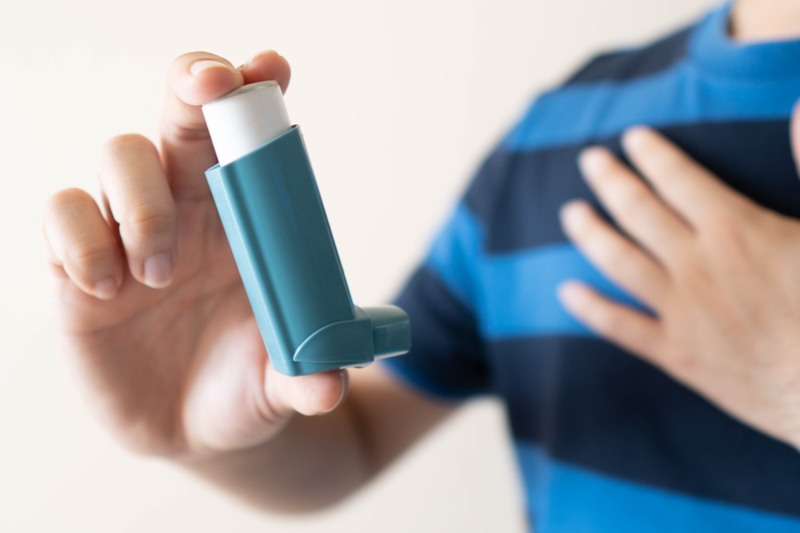

Tightness in the chest can be caused due to several reasons including cardiovascular conditions, respiratory conditions, and even gastrointestinal conditions. Some of the more common causes include:
- COVID-19
- Anxiety
- Gastroesophageal reflux disease (GERD)
- Pneumonia
- Asthma
- Heart attack
Sometimes pressure on the chest can cause anxiety, which can only worsen the feeling of tightness. Learning to identify the differences between the symptoms of these conditions can help you take the appropriate action if you or your loved one experiences chest pains.
2. How to identify what is causing the heavy feeling in your chest?
Besides the tightness in the chest, be aware of these other symptoms which will help you identify the cause:
1. COVID-19: This viral infection that caused a global pandemic in 2020, will also show symptoms like heaviness in breathing, bluish coloring of the lips, and persistent drowsiness along with chest tightness. Contact your doctor if you notice these other symptoms, or go to the hospital if you’re finding it difficult to breathe.
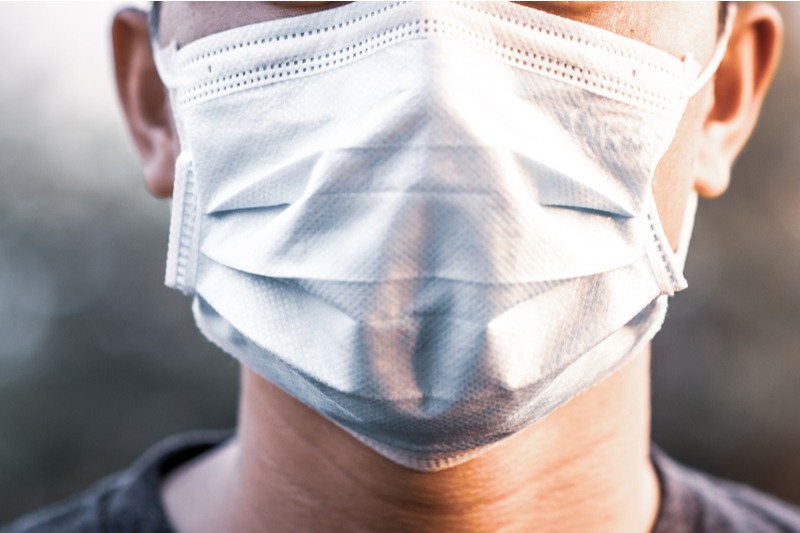

2. Anxiety: An Anxiety attack is usually accompanied by rapid breathing, increased heart rate, sweaty palms, and a feeling of nervousness. These usually last for about 10-20 minutes before passing. The best thing to do is to sit in one place and breathe into a paper bag till the attack passes.
3. GERD: If you are experiencing gastroesophageal reflux disease, the chest pain is usually accompanied by a burning sensation in the chest and feeling like there’s a lump in your throat. Antacids and certain medications, or even yoga can help relieve symptoms.
4. Pneumonia: Pneumonia is a full-blown disease with fever, coughing, chills, fatigue, nausea, and shortness of breath. Visit a doctor at the earliest if you have pneumonia symptoms.
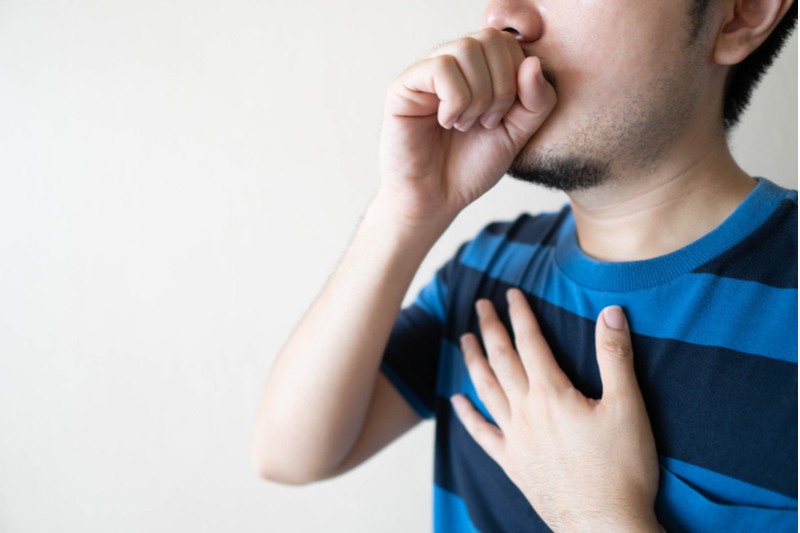

5. Asthma: While asthmatics usually know when they are experiencing an asthma attack, a sudden attack brought on by allergies can be identified by wheezing, coughing, and difficulty breathing. Visit a hospital in case of a sudden attack.
6. Heart attack: One of the most serious causes of chest tightness, heart attacks can be identified by a pain that radiates outwards to the rest of the body, difficulty breathing, and excessive sweating among other symptoms. Get to a hospital immediately in case of these symptoms.


If you haven’t seen a doctor and the pressure on the chest continues for over an hour, it is best not to delay going to the hospital any longer.
For more information on how to take care of your health visit the Activ Living Blog and get Healthy Recipes, Fun Fitness Routines, and Tips on Mental Wellness.









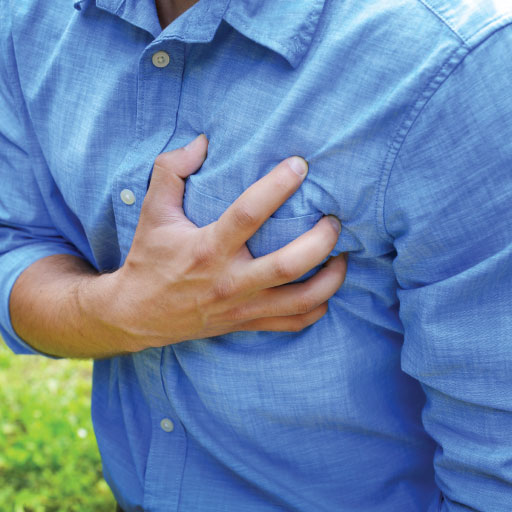

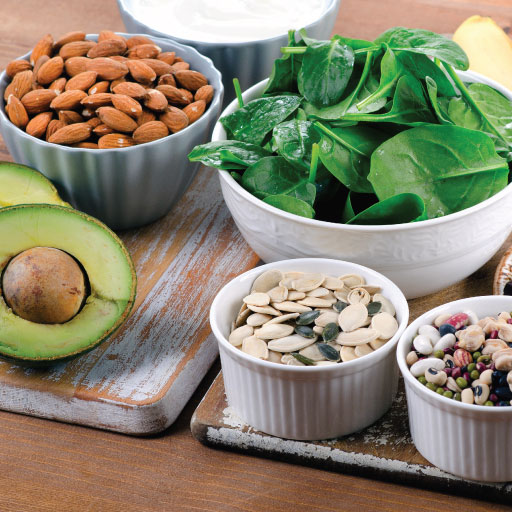




Very useful.
Everything is very open with a very clear description of the
challenges. It was really informative. Your site is extremely helpful.
Thank you for sharing!
What’s Happening i’m new to this, I stumbled upon this I’ve discovered It absolutely useful and it has aided
me out loads. I am hoping to contribute & help different customers
like its aided me. Great job.
whoah this blog is magnificent i like studying your articles.
Keep up the great work! You know, a lot of persons are hunting round for this information, you could aid them greatly.
My spouse and I absolutely love your blog and find almost all of
your post’s to be just what I’m looking for.
Does one offer guest writers to write content to suit your needs?
I wouldn’t mind publishing a post or elaborating on most of the subjects you write in relation to here.
Again, awesome website!
As I website owner I believe the subject material
here is real fantastic, thank you for your efforts.
I really like forgathering useful info, this post has got me even more info!
Thankfulness to my father who informed me concerning this weblog, this weblog is
genuinely remarkable.
I blog often and I truly thank you for your content. The article has really peaked my interest.
I’m going to book mark your site and keep checking
for new details about once per week. I opted in for your RSS feed too.
Have you ever thought about including a little bit more than just your articles?
I mean, what you say is valuable and all. But think about if you added some great photos or
video clips to give your posts more, "pop"! Your content is excellent
but with pics and clips, this blog could certainly be one of the greatest in its niche.
Fantastic blog!
I gotta favorite this web site it seems extremely helpful handy.
I like this site it’s a master piece! Glad I detected this on google.
Hi there, everything is going perfectly here and ofcourse every one is
sharing information, that’s truly good, keep up writing.
You are my aspiration, I own few web logs and rarely run out from brand :
).
Whoah this blog is great i really like studying your posts.
Keep up the great work! You understand, a lot of people are looking
round for this information, you could help them greatly.
Superb, what a weblog it is! This website gives helpful information to us,
keep it up.
each time i used to read smaller articles or reviews which as well clear their
motive, and that is also happening with this post which I am reading at this place.
I like the efforts you have put in this, thanks for all the great blog posts.
What’s up, yeah this paragraph is truly good and I have learned lot of things from it about blogging.
thanks.
Great article, totally what I needed.
It’s an amazing article in support of all the web viewers; they will take advantage from
it I am sure.
I enjoy, result in I discovered just what I used to be looking for.
You have ended my 4 day lengthy hunt! God Bless you
man. Have a great day. Bye
This was an extremely nice post.
This is a topic which is close to my heart…
Thank you!
The blog content is really interesting. Keep up the good work.
May I just say what a relief to uncover somebody that genuinely understands what they are talking about on the net.
You definitely realize how to bring an issue to light and make it important.
A lot more people really need to look at this and understand this side of the
story. It’s surprising you’re not more popular since you most certainly possess the gift.
Thank you for the good writeup.
I really like your writing style, good info, thanks for putting up :D.
Good job.
Thank you for sharing this!
it provides valuable insights and for all gives me something to ponder about.
Looking ahead to more content like this!
your blogs are really nice, keep it up!
Your insights were wonderful, and I love how your entire post is so relatable.
I can’t wait to see more posts like this! Keep up the good work!
Wow, what a great piece of info!
Your insights were super interesting, and I relish how you made entire
post so relatable.
Keep up the good work!